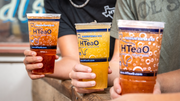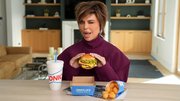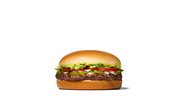Article
Portillo's sets a standard without big marketing budgets
Few brands develop a difference and execute it so well that knockoff attempts never come close to the original’s level.

August 6, 2014
By Barry Klein
Anyone who has worked at creating a consumer proposition that delivers enough of a competitive difference to make the business successful knows how difficult it is to achieve that goal. In the restaurant business, the achievement is truly remarkable because duplication of the differentiation is always happening. That’s why it is so pleasing to recognize the few brands that have been rewarded by developing a difference and executing it so well that knockoff attempts never come close to the original’s level.
Portillo’s is one such example. Dick Portillo is a tough, uncompromising guy who started with a bare bones hot dog stand, and never compromised the fundamentals over decades of phenomenal growth. Most people who live in Chicago and the surrounding suburbs consider Portillo’s their favorite restaurant for a hot dog or Italian Beef sandwich (or some other item on the menu), and patronize the brand often. Service sets a standard, food is tasty, hot and freshly prepared, value is more than competitive. But to this observer, it’s not any single aspect that keeps people coming back. The total experience and consistency of the delivery has not been achieved by any competitive concept.
As a marketing person, it’s a bit painful to admit that Portillo’s marketing spending is as low as it gets. I suspect that a substantial portion of what others invest in advertising moves to the labor line on Portillo’s statements. Even in the early days at McDonald’s, the pressure was always on to air as many advertising messages as possible. The mantra was, “If a person doesn’t eat lunch here today, they’re not going to eat two lunches tomorrow to make up for it.” For Portillo’s, the message has always been the experience, and people probably remember it well.
Another Portillo’s difference is the obvious absence of frills and so-called “modernization”. The funky, comfortable, fun-filled look and feel of the stores has endured through enlargements and menu changes, but remains a welcoming visit. Inside, there’s a lively, bustling atmosphere, and customers don’t seem to mind the noise level. When Ray Kroc was asked to define McDonald’s customers, his standard answer was “anybody who has a mouth.” That is a perfect description for Portillo’s consumers, probably with a slight skew to families with kids. The employees seem to be older than the typical QSR crew, but I’d bet that length of service is a particular point of pride.
Another bet is that practices such as focus group research, formal menu development and the hierarchy levels that are normal in today’s restaurant organizations have no place at Portillo’s. When an idea for a new product surfaces, it probably goes directly to one or more stores. If it doesn’t sell it goes away, and if it sells all stores introduce it. Most important, it’s likely that there is little tolerance for bad customer experiences or Dick’s personal observation of operational mistakes. Maintaining the standards has to be an obsession.
There may be other restaurant businesses that have been built with the same dedication and adherence to standards of performance as Portillo’s. If so, they are few and far between. In-N-Out Burgers comes to mind, as does Lettuce Entertain You restaurants, and there are probably quite a few small, family owned and operated brands scattered around the country. But for this old restaurant curmudgeon, Portillo’s is the standout example.
Barry Klein is best known for creating the Ronald McDonald character and led the "You Deserve A Break Today" advertising campaign for McDonald's. In his current occupation as a marketing consultant, Klein has developed business-building concepts, new products and more for Coca Cola, Pizza Hut, Quiznos, Cadillac, Ruby Tuesday, Friendlys, Perkins, Pay Less Shoes and others.
 ChatGPT
ChatGPT Grok
Grok Perplexity
Perplexity Claude
Claude








